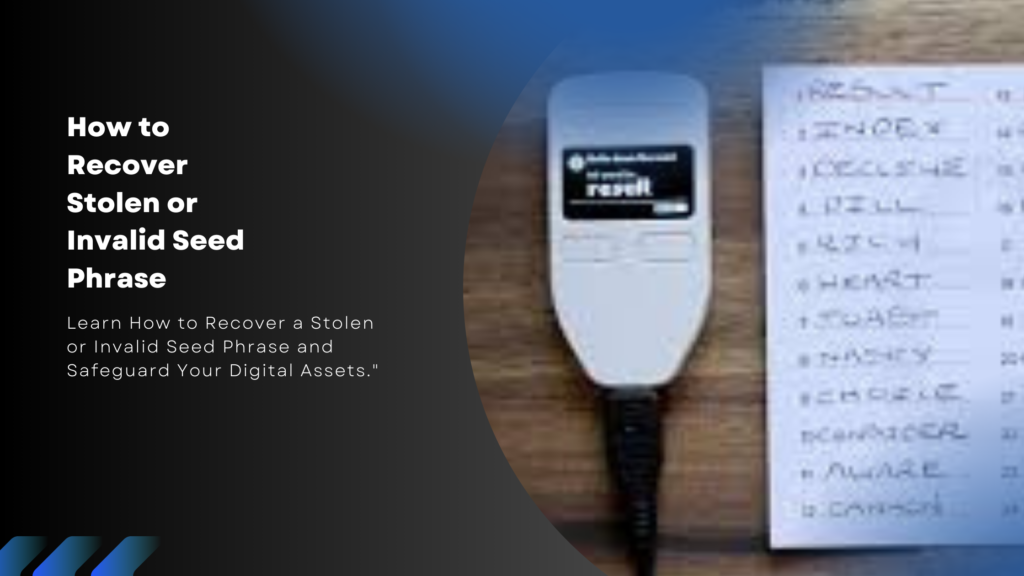Get In Touch
- 334 Antebellum Pl, Woodstock, Georgia 30188 United States
Subscribe to Our Newsletter
Copyright © 2025
SWIFT RESPONSE CRYPTO
All rights reserved

Cryptocurrency has revolutionized how we think about money, but it’s not without its risks. Losing access to your Bitcoin can feel devastating, especially considering the value it holds. Whether you misplaced your wallet credentials, deleted wallet files, or fell victim to fraud, there are ways to potentially achieve lost Bitcoin recovery. Here, we explore the top three methods for Bitcoin recovery and highlight when to seek expert assistance.
Your Bitcoin is stored in a digital wallet. Losing access to this wallet—whether through forgotten passwords, accidental deletion, or device failure—is one of the most common reasons for Bitcoin loss. Here are the steps to try recovering a lost wallet:

Most cryptocurrency wallets provide a recovery phrase (also known as a seed phrase) when you first set them up. This 12- or 24-word phrase is your lifeline to achieve lost Bitcoin recovery. To recover your wallet:
If you’ve misplaced your recovery phrase, it’s critical to search thoroughly through any saved documents, notes, or storage devices where you might have kept it.
If your wallet file was accidentally deleted, you may still recover it using file recovery software such as Recuva or EaseUS Data Recovery Wizard. These tools can help locate lost files on your computer or storage devices and assist in lost Bitcoin recovery.
If you’re using a popular wallet like Trust Wallet, Coinbase, or Ledger, their support teams may be able to guide you through recovery steps. Visit their official website for resources and avoid third-party sites that may pose security risks.
A hacked wallet is one of the most challenging scenarios. If someone gains unauthorized access to your wallet and transfers your Bitcoin, it’s critical to act quickly to increase your chances of lost Bitcoin recovery:
In many countries, cryptocurrency theft is considered a crime. Report the incident to local law enforcement or cybersecurity authorities, providing all relevant details and evidence.
Blockchain technology allows you to trace Bitcoin transactions using public addresses. Use blockchain explorers like Blockchain.com Explorer to track where your funds were sent. While this doesn’t guarantee recovery, it can provide valuable leads for lost Bitcoin recovery efforts.
Forensic blockchain experts specialize in tracing stolen funds and working with law enforcement. Companies like CipherBlade and Chainalysis offer services to investigate and recover lost cryptocurrency.
Falling victim to scams—whether phishing schemes, fake investment platforms, or fraudulent giveaways—can be disheartening. However, there are avenues for recourse and strategies for lost Bitcoin recovery:
Keep records of all communications, transactions, and details about the scam. This information will be crucial when reporting the fraud or seeking assistance.
Report the scam to your local authorities and relevant online platforms. In the U.S., you can file a complaint with:
Globally, platforms like Scamwatch offer reporting tools and advice for scam victims.
Several companies specialize in lost Bitcoin recovery from scams. However, it’s essential to vet these services carefully, as some could be scams themselves. Reputable options include:

Useful Links:
Lost Bitcoin recovery can be complex and time-sensitive. Seeking expert help is advisable in scenarios such as:
Ensure any service you hire is reputable and transparent. Look for reviews, certifications, and official affiliations to avoid falling into further scams.
While lost Bitcoin recovery is possible in many cases, prevention is always better than cure. Follow these best practices to safeguard your assets:
Losing Bitcoin can be distressing, but it’s not always the end of the road. By understanding recovery methods, seeking expert assistance, and implementing preventive measures, you can safeguard your digital assets and minimize potential losses. Whether you’ve misplaced a wallet, experienced a hack, or fallen victim to a scam, the steps outlined above offer a starting point for lost Bitcoin recovery and peace of mind.
For more insights on cryptocurrency security and recovery, explore resources from trusted organizations like Bitcoin.org and Cointelegraph.
Copyright © 2025
SWIFT RESPONSE CRYPTO
All rights reserved